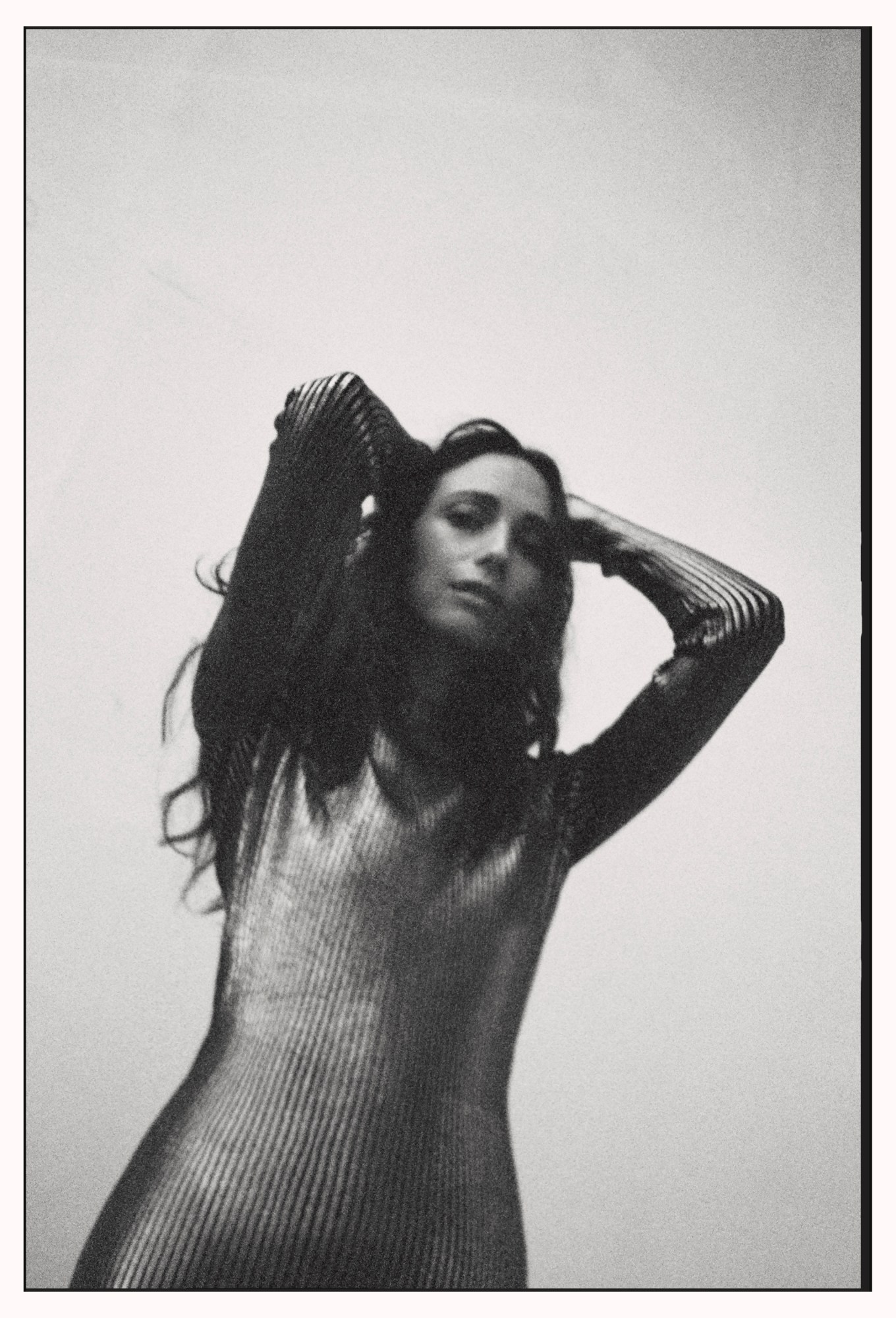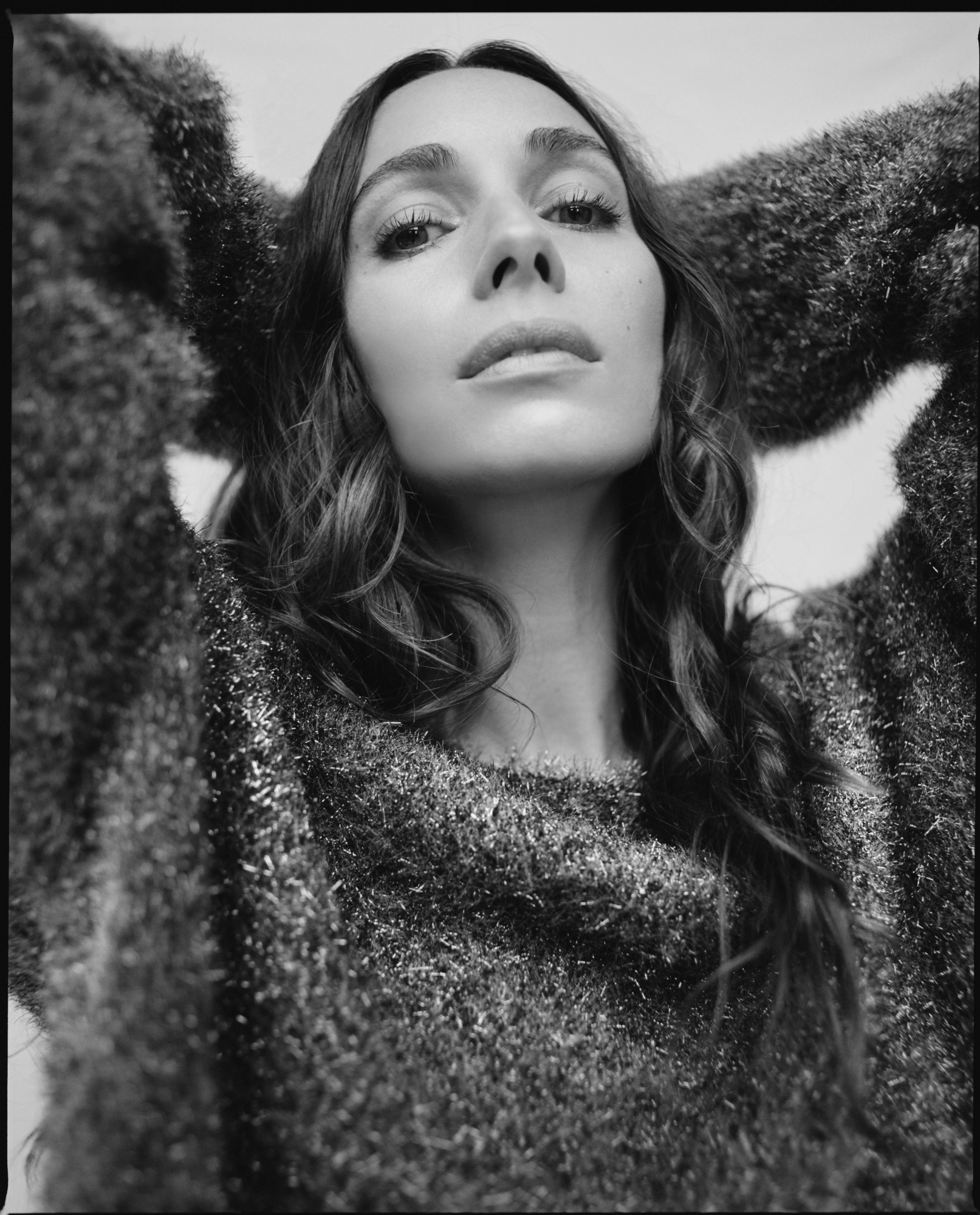Rebecca Dayan became so immersed in researching nun life for her latest film role that she started making art about it. The French-born actor/artist/model plays the particularly decorous Sister Emanuelle in Maggie Betts’s piercing new 60s nun drama Novitiate, and became fascinated with the intersection of religion and female sexuality. “When Catherine [Ahnell of Catherine Ahnell Gallery] asked me what I was going to be working on, it felt so natural,” Dayan says of automatically pitching her 2015 exhibition Assumption. The show is a series of large-scale watercolors depicting the habit-clad faces and parted lips of people in the throes of religious or sexual ecstasy.
It’s unsurprising that Dayan was thinking about desire in the context of Novitiate. The film centers on a group of young women entering the sisterhood at a stage in life when we particularly crave human connections. Such desires are not, of course, unique to nunneries, but are intensified in the context of the Catholic Church — which, in the 60s, was going through its own growing pains thanks to the upheavals known as Vatican II. Ironically, the “liberal” reforms result in the girls experiencing additional cruelty, their superiors proving largely resistant to a rapidly changing society. We talk to Dayan about her chemistry with co-star Margaret Qualley, and picking up painting subjects in bars.

What is your own relationship to religion?
I wasn’t raised religious. My dad is Jewish, but that was more like a cultural thing for me than a real faith thing. I had seen a lot of nun movies, like Black Narcissus and A Nun’s Story. But I didn’t understand how nuns really live their lives, and how they actually have a romantic relationship with God. That was the first thing that struck me. It’s interesting because it brings up the whole question of whether love is a projection.
Sisterhood is a big theme in the film. You also attended the Women’s March in Park City while at the film’s Sundance premiere. What was the vibe like on set working with so many other women?
It was really great. Everybody was very supportive of each other. We all became friends through the making of the movie. It felt really safe, and challenging in the best possible way.
At one point Sister Emanuelle says, “Sometimes things are easier when they’re more strict.” That really stuck out to me. Do you find it to be true in your real-life creative pursuits?
Yeah, definitely. Not necessarily “strict,” but especially in a creative process, total freedom is a bit scary sometimes. Having a frame is helpful, even if you’re going to break that frame at some point. The white page can be daunting. I think that’s one of the reasons I like painting from pictures I take. It gives me a starting point.

It seems like you frequently paint girls who you know, particularly close friends. Is this true? How does this affect your relationships with those girls?
Most of them are friends, but some of them are acquaintances. There’s one girl who I didn’t know at all, I just saw her at a bar and I asked [if I could paint her]. Mostly it’s people I know because I feel inspired by them for reasons other than what they look like. It’s important for me to have a connection with my subjects. It’s pretty easy on them because I paint from photographs — I don’t make them sit for hours. I want to ask someone to do that, but I would be really nervous, I think.
What was it about the girl in the bar that made you want to paint her?
She was wearing an eye patch. She looked super fierce and comfortable. I don’t think I had ever seen a girl wearing an eye patch before.
I read that as actors you had some role in shaping your own characters.
I actually started working with Maggie on a different character, then we decided that the character of Sister Emmanuelle was more fitting. She was pretty fully fleshed out when we started working, but we definitely worked together on some of the scenes. For instance, I picked the prayer that I say when I’m crawling on the floor. Particularly the scenes between Cathleen [Margaret Qualley] and Sister Emanuelle that were very intimate, we worked on together.
The chemistry between your characters is really special. Sister Emanuelle doesn’t have those strong emotional connections with the other characters.
Margaret and I became friends long before we started filming. We had a really good relationship, and what was amazing is that we got to have a week of rehearsals together before we started filming. My character doesn’t have a lot of interactions with the other girls, but I think that was also a key element in the relationship between [mine and Qualley’s] characters.
What was the most emotional or memorable scene to shoot?
We had prepared a whole chunk of time for the scene where Cathleen comes into Sister Emmanuelle’s room. It was so sad and it was super intimate. Margaret and I are good friends, so we were very comfortable — it was not awkward or anything like that. We ended up filming in two or three takes. We had two hours to do that scene and we were done really early. It was my last scene on set, so it was emotional for a lot of reasons. There was a lot of build-up to it, and it happened really fast, then the film was over for me. It was an emotional moment.
“Novitiate” is playing in select cinemas now.
